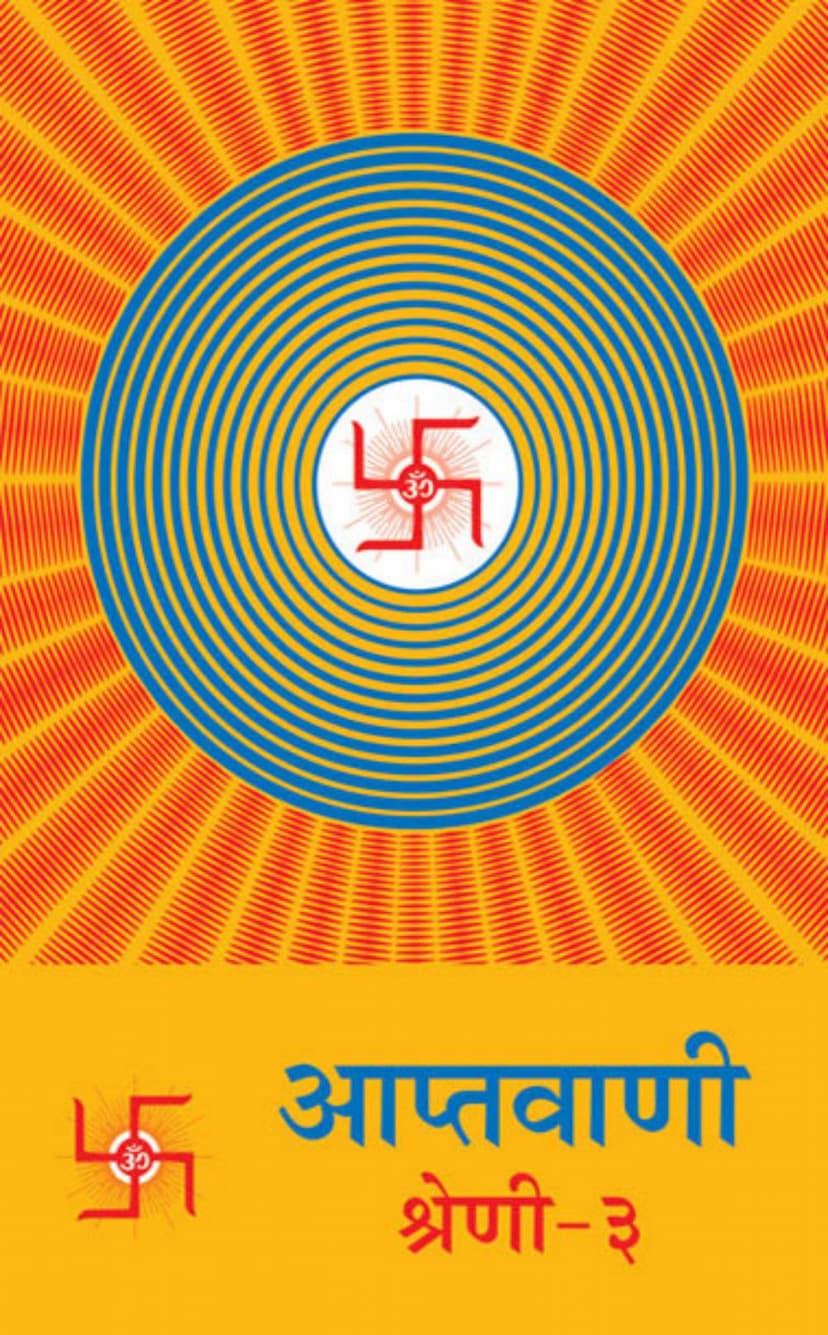Aptavani Shreni 03
Added to library: September 1, 2025

Summary
Here's a comprehensive summary of "Aptavani Shreni 03" by Dada Bhagwan, based on the provided text:
Overall Purpose and Context:
"Aptavani Shreni 03" is part of a series of spiritual discourses by Dada Bhagwan, a spiritual teacher who, according to the text, experienced a profound self-realization in 1958 and began imparting self-knowledge to others. The "Aptavani" series aims to capture the essence of Dada Bhagwan's spoken words, conveying spiritual and practical wisdom. This particular volume, "Aptavani Shreni 03," focuses heavily on Self-Knowledge (Atma Vignana) and Behavioral Knowledge (Vyavahara Vignana). The ultimate goal is to guide individuals towards self-realization and liberation (moksha).
Core Teachings - Self-Knowledge (Atma Vignana):
The first section delves deep into the nature of the Self (Atma). Key concepts include:
- The True Self: The core message is that the true Self is pure, unchanging, and distinct from the physical body, mind, and ego. The common identification with the temporary ego-name ("Chandulal" is used as a placeholder) is a misapprehension.
- The Illusion of Agency: The text emphasizes that individuals are not the doers of actions in the worldly sense. Actions are orchestrated by "Vyavasthit" (a scientific, mechanical adjustment governed by natural laws). The ego ("I am doing") creates karma and suffering.
- The Nature of Consciousness: The Self is described as pure consciousness (Chaitanya), a knower and seer (Gyata-Drashta), and inherently blissful (Paramanand). It is described as omnipresent, ageless, formless yet having a subtle form, and untouched by the material world.
- Overcoming Ignorance: Ignorance (Agnyashakti) is the root cause of suffering and the cycle of birth and death. Self-knowledge (Prajna Shakti), imparted by a Gnani (a Self-realized being), dispels this ignorance.
- The Role of the Gnani: A Gnani is crucial for imparting self-knowledge. They act as a conduit, helping to break through the layers of ignorance and misidentification. The text highlights the unique, effortless, and instant nature of the self-realization process through Dada Bhagwan's "Akarma Marg" (non-sequential path).
- The Science of Atoms and Karma: The text touches upon a scientific understanding of atoms and their role in creating perceived reality and karma. It explains how desires and beliefs influence these atomic interactions, leading to consequences.
- The Path to Liberation: True liberation (moksha) comes through understanding and abiding in the true Self. This involves shifting perception from the relative (ego, body) to the absolute (the Self).
- Key Concepts:
- Tattvas: The text discusses various elements like Pudgal (matter), which is seen as the active principle of the universe, and how it interacts with the passive Self.
- Gunas and Paryayas: The distinction between the eternal attributes of the Self (Gunas) and its changing states (Paryayas) is explored.
- Upayoga: The importance of right and pure application of consciousness is stressed, contrasting it with the misguided usage in the ego.
- Kevalgyan: The state of Absolute Knowledge, where the Self perceives all realities without any limitation, is the ultimate goal.
Core Teachings - Behavioral Knowledge (Vyavahara Vignana):
The second section provides guidance on how to navigate the world while maintaining inner peace and progressing spiritually. Key themes include:
- The Art of Living: The primary goal of human life, beyond mere existence, is to live harmoniously and meaningfully. This involves understanding one's true purpose and living with skill and awareness.
- Non-Confrontation and Adjustment: A central principle is "Adjust Everywhere" and "Avoid Conflicts." Instead of reacting or retaliating, one should aim to resolve disagreements, maintain equanimity, and adapt to situations.
- Family Relationships: The text offers profound advice on managing family dynamics, emphasizing understanding individual natures, avoiding excessive attachment, and acting with detachment and love. It encourages parents to act as "trustees" rather than possessive owners of their children.
- The Importance of Understanding: Recognizing that everyone has their own unique nature ("Revolutions" in thought speed) is crucial. Adjusting one's approach and "counter-pulleys" (adjustments) is key to harmonious interaction.
- The Nature of Suffering: True suffering arises from ignorance and misidentification. External events themselves are not the cause of suffering; it is our perception and reaction that create it.
- The Role of Sincerity and Morality: These are presented as the bedrock of all spiritual paths and essential for inner progress.
- The Principle of Non-Violence in Behavior: "Ideal behavior" is defined as causing no suffering to any living being.
- The Power of Letting Go and Forgiveness: Letting go of past grievances, forgiving oneself and others, and engaging in self-correction through "pratikraman" (repentance and seeking forgiveness) are vital.
- The Importance of a Balanced Approach: The text advocates for a balanced approach in life, avoiding extremes of attachment and aversion, and finding equanimity in all circumstances.
- Practical Advice: The book offers practical solutions for everyday challenges, from managing finances to dealing with difficult personalities, all through the lens of spiritual understanding and self-mastery.
Key Takeaways:
- The distinction between the Self and the ego is paramount.
- True happiness and liberation come from realizing the true Self, not from external circumstances.
- A Gnani is the only means to attain Self-knowledge and liberation.
- Understanding the laws of karma and "Vyavasthit" helps in navigating life with equanimity.
- Ideal behavior, characterized by non-violence and understanding, is essential for spiritual progress and worldly harmony.
- The teachings advocate for a practical, scientific approach to spirituality, emphasizing understanding and experience over blind faith or rituals.
In essence, "Aptavani Shreni 03" is a guide to understanding the true nature of reality and the Self, offering practical tools for living a life free from suffering and moving towards ultimate spiritual freedom.